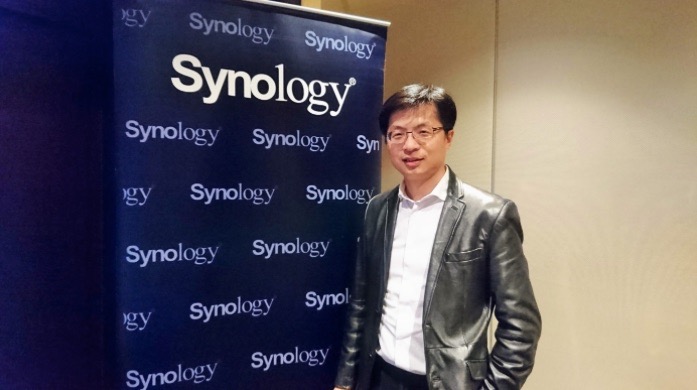Synology believes Europe is a less cutthroat market than the US because Europeans are more open to foreign brands

Synology has an unusual message for local companies: Don’t overlook Europe.
Half the Taiwanese cloud storage firm’s profits come from Europe, according to an article in Business Next. The market is so important that the company launches new products and services in Europe first.
Other Taiwanese companies often start local, expand around Asia and may later test the United States.
Why chase Europe
In a Business Next article, Synology CEO Derren Lu recounted working in France for three years. That mission to explore new markets for Synology left him impressions of the strength of Europe’s infrastructure, high average incomes and high technological standards. Those hallmarks allow the continent easily to accept new technologies, he said.
Lu says Europe is also a less cutthroat market than the United States, which is dominated by well-known technology brands. European consumers tend to be more open and friendly to foreign brands, he said.
Lu believes Taiwanese technology companies enjoy a good reputation and a high degree of brand awareness in France.
Also Read: Boxing great Floyd Mayweather hopes to remain undefeated with u-Hop investment
Taiwanese firms, in turn, should consider setting up operations in smaller European nations such as the Netherlands and Switzerland before taking on a larger market such as Germany. Both of those smaller nations are tech-savvy, he found.
Synology’s hardware and services
Synology’s cloud services back up PC or cell phone data such as photos, music, and videos. Unlike its peers iCloud and Google Drive, Synology lets its customers own the physical hardware where their data is stored.
Commonly referred to as network attached storage (NAS), this type of hardware is basically a stripped-down PCs with a simple CPU, multiple hard drives and Ethernet internet connections.
On top of this hardware setup, Synology offers its own software interface allowing users to drag and drop files among other basic functions. The system also works as a server or an e-mail server for small companies on shared LAN networks.
Synology sells an average of 5.5 million network attached storage devices annually, according to a Business Next article.
The worldwide network attached storage market overall is forecast to expand at a compound annual growth rate of 16.3% from 2017 to 2013, ResearchAndMarkets.com says in report.
Expansion in Japan
Synology was founded in 2000 and has about 60 competitors.
Synology is starting now to develop more clients in Japan over the past few years. Japanese consumers often take a conservative attitude towards international brands and stick with their own said Lu. For this reason, Japanese vendor Buffalo, a would-be rival to Synology, commands a strong following in the home market.
Also Read: China to set up national standards for blockchain
Synology got into the Japanese market by selling via Amazon initially and picking up customers that way. Some customers wrote reviews on Amazon saying they felt the quality of their Japanese network attached storage products had fallen behind those of Taiwan.
“It’s very difficult to win over Japanese customers if your quality is simply on par with other Japanese companies,” Lu said.
In April Synology officially established a branch in Japan to expand its hold in the market.
—
The article How a Taiwanese cloud storage provider took on Europe and Japan first appeared on Business Next.
The post How a Taiwanese cloud storage provider took on Europe and Japan appeared first on e27.